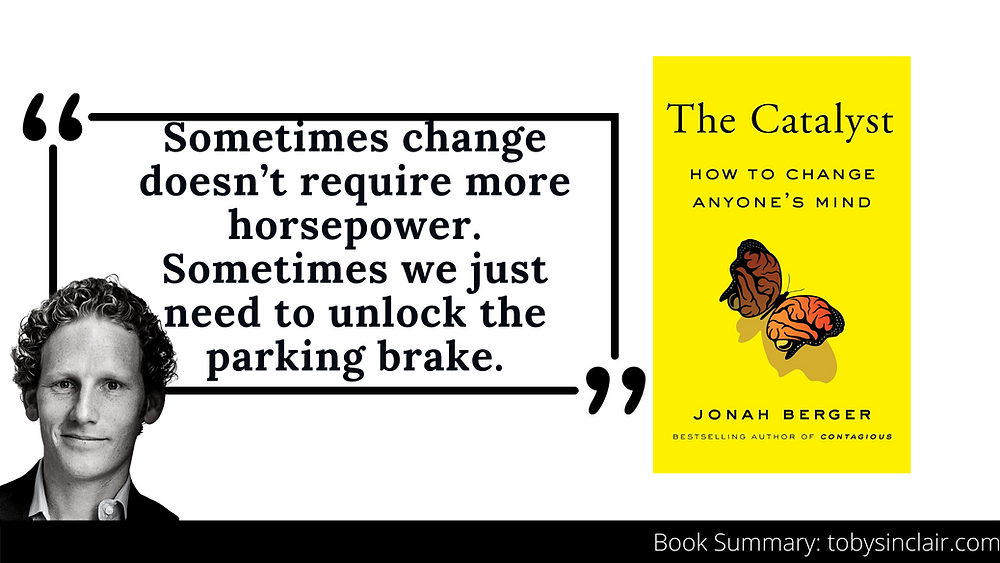
“The Catalyst: How to Change Anyone’s Mind” is a book written by Jonah Berger. It’s a fascinating book that explores the science behind persuasion and the art of changing people’s minds. While I can’t provide you with external links, I can certainly give you a brief summary of the key concepts in the book.
In “The Catalyst,” Jonah Berger introduces the idea of “catalysts,” which are small, strategic changes that can lead to significant shifts in people’s thinking and behavior. He argues that rather than trying to change someone’s mind directly, it’s often more effective to identify and leverage these catalysts to influence their decisions.
Here are some key takeaways from the book:
- The Power of Small Changes: Berger emphasizes that big, sweeping arguments or changes are often met with resistance. Instead, he advocates for finding small, subtle tweaks that can nudge people in the desired direction.
- Social Influence: He delves into the role of social factors in changing minds. People are heavily influenced by those around them, so understanding social dynamics can be a powerful catalyst for change.
- Understanding Friction: Berger discusses the concept of “friction,” which represents the obstacles that prevent people from taking action. Removing or reducing friction can make it easier for individuals to change their minds and take action.
- Narratives and Stories: The book also highlights the importance of storytelling in persuasion. Crafting compelling narratives that resonate with people’s emotions can be a catalyst for change.
- Persistence: Changing minds often requires patience and persistence. Berger provides strategies for staying committed to the process of persuasion over the long term.

If you’re interested in diving deeper into these concepts, I recommend picking up a copy of “The Catalyst.” It’s a valuable resource for anyone looking to understand the psychology of persuasion and how to effectively influence others.
I really enjoyed this book and have been able to use these concepts on a day to day basis.
Thanks for reading
James
